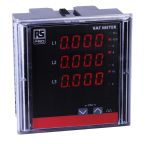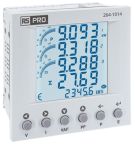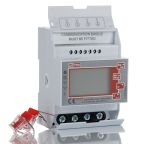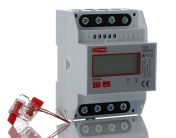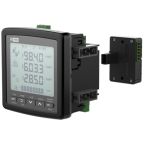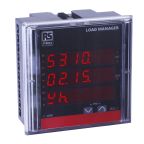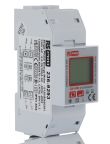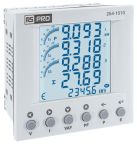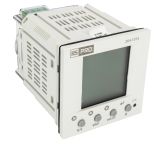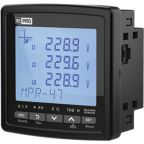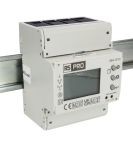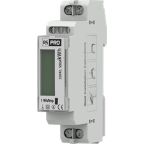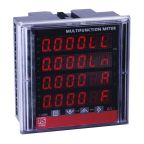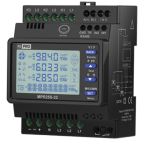Energy Meters
Energy meters are essential devices used to measure and monitor electricity usage in residential, commercial, and industrial settings. They play a crucial role in accurately tracking energy consumption, allowing users to manage their electricity usage more efficiently.
Energy meters provide valuable data that helps in identifying areas of high energy consumption, optimizing energy usage patterns, and ultimately reducing electricity costs. Whether in homes, businesses, or industries, energy meters are indispensable tools for promoting energy efficiency and sustainability.
What Are Energy Meters?
Businesses often face significant energy expenses, underscoring the importance of selecting the appropriate electric meter. Energy meters, also known as electrical meters or energy monitors, are used for measuring and tracking energy consumption. Typically, they are employed to record various metrics like power, frequency, voltage, current, and wattage.
This helps to ensure precise data collection that’s essential for managing energy usage effectively. Energy meters come in diverse variations, including panel-mounted or DIN rail-mounted options, or those directly plugged into wall outlets. DIN rail-mounted meters are particularly suitable for rack-mounted equipment. By integrating an electricity meter into a power management system, businesses can monitor and optimize energy efficiency, crucial for environmental sustainability and cost reduction.
These meters are also equipped with LCD displays or analogue dials, allowing you to easily view meter readings and navigate through various settings, including backlighting and language options. Additionally, you can also benefit from incorporating a kWh meter to precisely measure energy consumption in kilowatt-hours, providing valuable insights into your electricity usage patterns.
Energy Meter Components and Accessories
Meter boxes and associated components play essential roles in the functionality of electrical systems. The electrical meter box serves as the enclosure for the meter and its components, and provides protection from external elements. Within this box, various parts, including the electric meter parts, ensure accurate measurement and monitoring of electricity usage.
With the transition to modern technology, traditional meters are frequently being replaced by digital meters or digital kWh meters, which offer enhanced accuracy and data collection capabilities. However, like any equipment, these components may require maintenance or replacement parts over time. Common parts that may need attention include meter seals, terminals, and wiring connections to ensure optimal performance and accurate readings. Regular inspection and timely replacement of worn-out components can help maintain the reliability and efficiency of the electrical metering system.
Energy Meter vs Power Meter
While energy meter and power meter are often used interchangeably, there's a subtle difference between the two terms. An energy meter typically measures the total amount of energy consumed over a specific period, usually in kilowatt-hours (kWh). It provides a cumulative measure of energy usage, making it useful for monitoring the overall energy consumption over time.
On the other hand, a power meter measures the instantaneous power consumption at a given moment, usually in watts (W) or kilowatts (kW). It provides real-time data on power usage, and allows for immediate insights into the energy demand and load variations. So, while both meters are essential for understanding energy usage, the energy meter focuses on total consumption over time, while the power meter focuses on instantaneous power demand.
Types of Electrical Meters
There are 4 types of electrical meters:
- Digital Energy Meters: These meters use digital technology to measure and display energy consumption in a digital format, typically in kilowatt-hours (kWh). They offer precise readings and often come with additional features such as data logging and remote monitoring capabilities. Electrical meter digital options have become increasingly popular due to their accuracy and efficiency in tracking energy usage.
- Analog Energy Meters: Analog meters, also known as electromechanical meters, rely on mechanical components to measure and display energy consumption. They typically feature a rotating disk or dial that indicates energy usage. While they are less precise than digital meters, they remain widely used in many regions due to their reliability and simplicity. However, they are gradually being phased out in favor of digital alternatives like the digital power meter.
- Smart Meters: Smart meters are advanced digital meters that offer two-way communication between the meter and the utility company. They provide real-time data on energy usage and can communicate remotely, eliminating the need for manual readings. Smart meters also enable features like time-of-use billing, which incentivizes consumers to use electricity during off-peak hours when rates are lower. Smart meters are increasingly being adopted in countries like the Philippines to modernize the energy infrastructure and improve efficiency.
- Sub-Type Meters: Sub-type meters refer to specialized meters designed for specific purposes or applications within an electrical system. These may include meters for monitoring individual circuits, such as those used in sub-metering applications for tenant billing in multi-tenant buildings. They can also include meters for measuring specific parameters like voltage, current, or power quality. In the Philippines, sub meters play a crucial role in managing energy usage in various sectors.
Applications of Energy Meters
Energy meters are widely utilized across residential, commercial, and industrial settings in the Philippines to monitor and manage electricity usage. They are used in households to track energy consumption for accurate billing and to encourage energy conservation. In commercial establishments throughout the Philippines, these meters help businesses monitor their energy usage patterns, optimize operations, and control costs. In industrial environments, energy meters play a crucial role in monitoring large-scale energy consumption, identifying inefficiencies, and implementing energy-saving measures to support sustainable development initiatives in the Philippines.
Choosing the Right Energy Meter
When purchasing the right energy meter, several factors should be considered:
- Assessing the Scale of Use: Determine whether the energy meter will be used in a residential, commercial, or industrial setting, as this will impact the required features and capabilities.
- Type of Data Required: Consider the specific data points needed, such as energy consumption, voltage, current, power factor, or demand, to ensure the meter device meets the monitoring and reporting requirements.
- Compatibility with Existing Systems: Ensure the energy meter is compatible with existing infrastructure and monitoring systems to facilitate seamless integration and data management.
- Cost vs. Benefit Analysis: Conduct a cost-benefit analysis to evaluate the upfront price of the sub-meter against the potential savings or benefits derived from improved energy management and efficiency.
By carefully considering these factors, you can select the most suitable meter device or meter equipment for your needs, whether it's for residential, commercial, or industrial applications in the Philippines.
Energy Meter Pricing and Options in the Philippines
Looking for the right energy meter for your needs? RS Philippines has you covered! Whether you need residential, commercial, or industrial meters, we offer a diverse selection to meet your needs, from digital meters, smart meters and more. Contact us today to get started!
Popular Searches
Related links
- Schneider Electric 3 Phase LCD Energy Meter
- Murata Power Solutions 1 Phase LED Energy Meter
- Sifam Tinsley 3 Phase Backlit LCD Digital Power Meter
- RS PRO 3 Phase Energy Meter
- Socomec Energy Meter
- Schneider Electric 3 Phase LCD Digital Power Meter
- Schneider Electric 3 Phase Remote LCD Energy Meter
- ENTES 3 Phase Energy Meter
